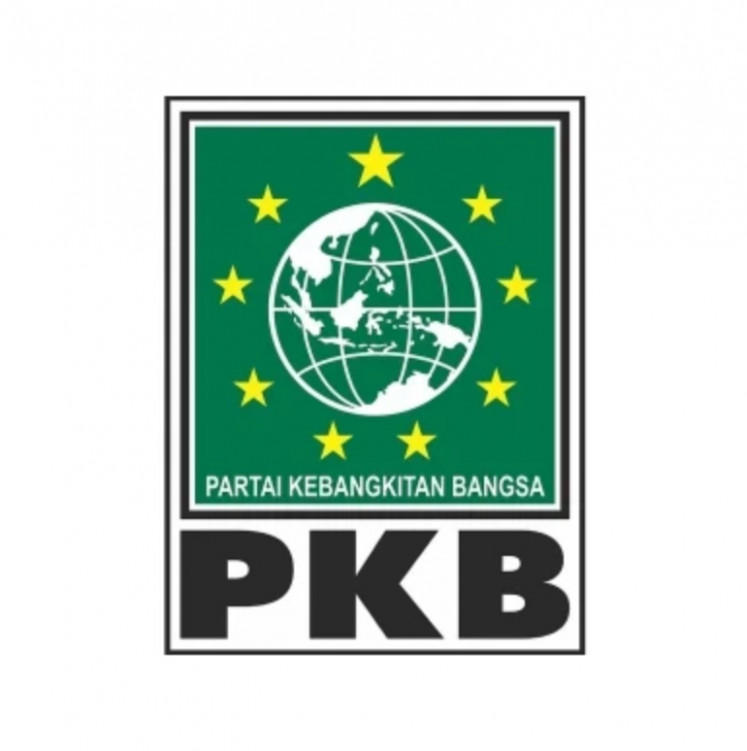
| Chairperson | |
| Secretary-general | |
Notable Figures
|
|
| Number of seats: |
The PKB is a political party that has a strong historical connection with the largest Islamic organization in Indonesia, Nahdlatul Ulama (NU). The primary support base of the PKB consists of Muslim followers affiliated with the NU in Java, as the PKB maintains strong ties with the kyai (religious leaders) who hold significant influence among their followers. |
Despite having a strong connection with Indonesia’s largest Islamic organization the NU, the PKB has always positioned itself as an inclusive and nationalist party.
The PKB manifests its inclusivity and nationalism by having a significant number of non-Muslims holding important positions in its national and regional leadership boards.
In terms of economic and social issues, the PKB usually takes a more conservative stance and prefers a state-regulated economy rather than a free-market one.
Soeharto's resignation on May 21, 1998, marked a pivotal moment in Indonesia's political history. The Reform movement, a massive civic movement, led to his downfall and the emergence of new political parties.
One of these parties was the PKB, born from the Reform movement's aftermath.
In response to calls from NU members across Indonesia, the NU Central Board (PBNU) considered the need for a party representing its aspirations, although it had historically stayed away from formal political affiliations as per its 1984 Muktamar (congress) decision.
This cautious approach left many NU members dissatisfied, leading to the rise of several NU-based parties.
On June 23, 1998, the PKB officially formed with the goal of representing NU members and the wider Muslim population in Indonesia. The declaration took place at the residence of PBNU chairman Abdurrahman "Gus Dur" Wahid.
The PKB quickly entered the 1999 general election, surpassing expectations as a newcomer. It secured third place with around 13 million votes, trailing only the established parties like the Indonesian Democratic Party of Struggle (PDI-P) and the Golkar Party, even surpassing the older United Development Party (PPP).
This success was attributed to support from the PBNU, NU members, religious leaders and the influence of Gus Dur, a key figure in the 1998 Reform movement. Gus Dur assumed the presidency but was removed on July 23, 2001.
Internal conflicts
Following Gus Dur's removal, the PKB continued under Alwi Shihab's leadership, but internal divisions emerged, primarily between Matori Abdul Djalil's supporters and those of Alwi, who had Gus Dur's backing.
The schism deepened with Matori's unilateral dismissal by the patron board, related to his involvement in the 2001 People’s Consultative Assembly Special Session led by Amien Rais.
Despite ongoing internal conflicts, the PKB remained a significant player in the 2004 general election, retaining its third-place position and securing 52 seats in the House of Representatives/People’s Consultative Assembly.
In 2005, the PKB Congress in Semarang, Central Java, saw Muhaimin "Cak Imin" Iskandar assume the role of central board chairman, with Gus Dur as patron board chairman.
However, as the 2009 general election approached, internal strife resurfaced, leading to Cak Imin's dismissal and a legal battle with Gus Dur.
The ongoing internal conflicts within the PKB during the 2000s earned the party the new nickname, the Partai Konflik Berkelanjutan (always conflicting party), inside the country’s political and academic circles.
Cak Imin's leadership faced heavy challenges in the 2009 general election due to the conflict, resulting in a substantial decrease in both votes and parliamentary seats. However, he managed to revive the PKB's performance in the subsequent electoral contests. In the 2014 general election, the PKB secured over 11 million votes and maintained fifth place.
Cak Imin continued to navigate the national political landscape in the lead-up to the 2019 general election, successfully positioning Ma'ruf Amin as the vice-presidential candidate.
This strategic move ultimately culminated in victory, as Ma'ruf Amin and Joko “Jokowi” Widodo secured the 2019 presidential election.
Cak Imin’s quest for power
Cak Imin had previously made history by becoming the youngest politician ever to be named as one of the speakers of the House of Representatives in 1999 and once again as the youngest political party chairman, before Jokowi’s youngest son, Kaesang Pangarep, became the leader of the Indonesia Solidarity Party (PSI) recently.
Now a seasoned politician, whose winning track record has benefited many of his party’s members into ministerial positions, Cak Imin is vying to step up his political game by aligning himself as a vice presidential candidate for the opposition candidate, Anies Baswedan.
Cak Imin’s decision to bring the PKB closer with Anies has caused an internal rift once again within the party, particularly with those who are heavily affiliated with the Gus Dur clan.
Voted for:
Omnibus Law on job creation
Capital City Nusantara (IKN) Law
New and Renewable Energies Law
Criminal Code (KUHP) Law Revision
Corruption Eradication Commission (KPK) Law Revision
Electronic Information and Transactions (ITE) Law Revision
Sexual Violence Eradication Law
Indigenous Peoples Law
Voted against:
None
Convicted high-profile members:
Imam Nahrawi
In June 2020, the Jakarta Corruption Court sentenced former youth and sports minister Imam Nahrawi to seven years in prison for his involvement in a bribery case pertaining to a grant to the Indonesian Sports Council (KONI).
The Corruption Eradication Commission (KPK) had accused Imam of accepting bribes during his term as sports minister from 2014 to 2019 to ensure his approval of a grant proposed by KONI to supervise several athletic events in 2018, including the 2018 Asian Games and the Asian Para Games.
He was accused of accepting Rp 11.5 billion (US$733,000) in bribes and an additional Rp 8.64 billion in gratuities from a number of ministry and KONI officials.
National Awakening Party (PKB) members’ corruption tally: *
* Information courtesy of BijakMemilih.id